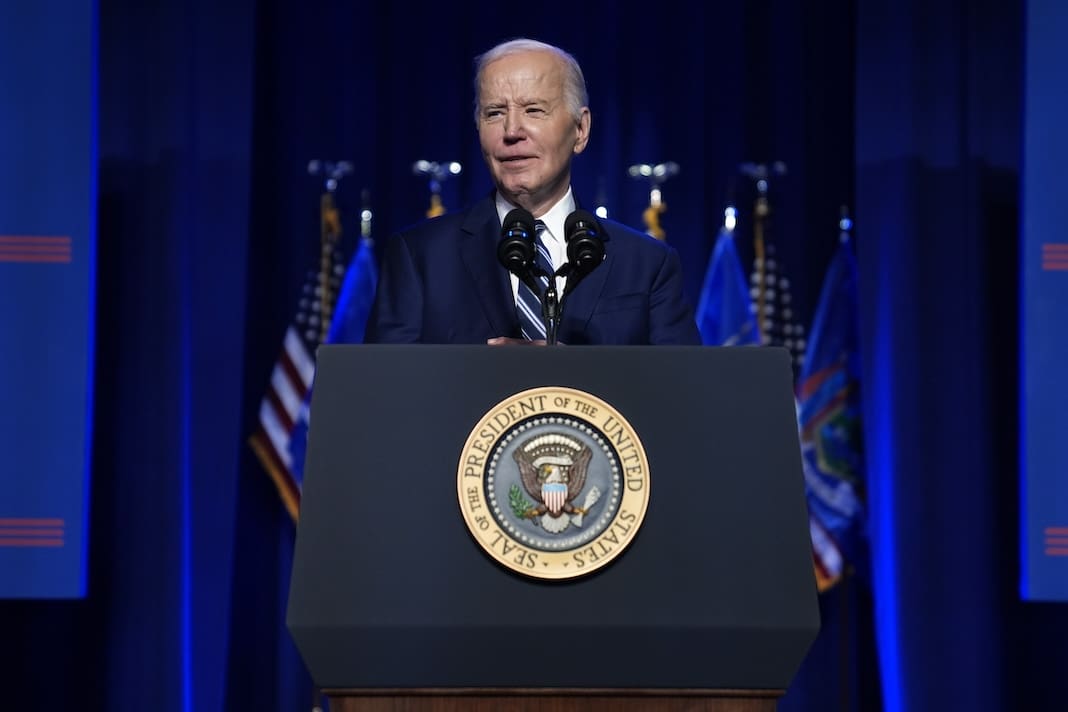Biden administration cracks down on prescription drug price gouging
The Inflation Reduction Act has reduced insulin costs for millions of Americans.

The White House announced a new plan on Dec. 7 that would allow the federal government to license the patent rights to make certain prescription drugs more affordable if the prices have been found to be artificially inflated. National and state public opinion polls have shown that high prescription drug prices are a concern for many consumers.
“My Admin is proposing if a drug made using taxpayer funds is not reasonably available to folks, the government reserves the right to ‘march in’ and license that drug to another manufacturer who could sell it for less. It’s an important step toward ending Big Pharma price gouging,” President Joe Biden wrote in a post on Threads.
The White House said the authority for Biden’s proposed action comes from the Bayh-Dole Act of 1980, which governs the rules concerning patents for inventions made with federal funding. The framework was created by the departments of Commerce and Health and Human Services after a review of the law and the power, known as “march-in rights,” that began in March. A period of public comment will follow before the federal rule is finalized and becomes official policy.
PhRMA, the lobbyist group for many drugmakers, criticized the Biden administration’s announcement.
“This would be yet another loss for American patients who rely on public-private sector collaboration to advance new treatments and cures. The Administration is sending us back to a time when government research sat on a shelf, not benefitting anyone,” PhRMA tweeted.
The organization has consistently opposed efforts by the Biden administration to lower drug costs for consumers.
The federal government has played a significant role in the creation of new drugs.
According to an August 2020 study by the Institute for New Economic Thinking, between 2010-2019, the development of every new drug that was approved for use by the public had involved research funded from $230 billion allocated by the National Institutes of Health over that same period. As a part of the Department of Health and Human Services, NIH is funded by the federal government.
At the same time, most of the revenue in the pharmaceutical industry has been earned by a few companies. A 2021 study by the nonpartisan Congressional Budget Office found that 70% of the industry’s revenue came from the 25 largest drug companies.
Recently, many drug prices have increased faster than the rate of inflation. The progressive Center for American Progress found that in June, the prices of 112 drugs increased by a median of 3.9%, 30% higher than overall inflation.
The public has expressed clear concern about prescription drug prices.
In a KFF Health Tracking Poll taken July 11-19, 82% of respondents said the costs of prescription drugs are unreasonable. In the same survey, 31% said they hadn’t taken their medicine as prescribed in the previous 12 months due to high costs.
Similar results have been seen in state-level polls.
A June 15-21 Embold Research poll of registered voters in Pennsylvania showed 57% were very or somewhat worried about prescription costs, and 81% of respondents said drug company profits were the main driver of those costs. A total of 87% backed a role for the government in bringing costs down.
Some 53% of those responding to a 2019 Healthcare Value Hub poll in Wisconsin said they were worried or very worried about prescription costs, and 59% supported government action to lower those costs.
In Michigan, a Sept. 13-17 poll of likely voters by GQR found that 61% blamed drug companies for high drug costs and 75% backed a state government proposal designed to lower prices.
The Biden administration has taken various actions to lower prescription drug prices.
The Inflation Reduction Act that Biden signed in 2022 put a cap on insulin costs at $35 per month for certain Medicare recipients. Following the implementation of the law, drugmakers Eli Lilly, Novo Nordisk, and Sanofi announced plans to lower insulin prices for all consumers.
The Inflation Reduction Act also gave the government the power to negotiate drug prices for people on Medicare.
The law received no support from Republicans when it was being voted on in Congress.
Congressional Republicans have proposed repealing the legislation, which could result in increased drug prices if they are successful.Leading Republican presidential candidates, including former President Donald Trump and Govs. Ron DeSantis and Nikki Haley say they oppose the law.




